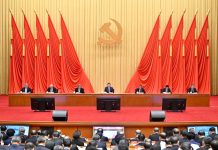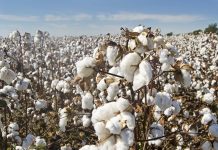BEIJING: Laws and regulations associated with data protection and the improvement of the internet-based economy are widely expected as Beijing signaled a fresh round of efforts to curb monopolies and bolster fairness in the fast-growing sector, experts said.
A key meeting presided over by President Xi Jinping on Monday reiterated the necessity of strengthening oversight of the economy supported by internet platforms, which has helped raise efficiency in the allocation of resources yet faces malaises such as unregulated growth and an insufficient governance system.
Mounting calls for expedited improvement of related rules and systems, as well as the development of a property rights system for data, would herald an era of strengthened regulation and lawmaking on data and privacy-related protection, said Li Bing, principal of consultancy Roland Berger. “With the basic framework for privacy protection already put in place, laws on data security and information protection are likely to be passed in the next one or two years, which will enhance the legal basis for market operations and further unleash the vitality of internet players,” Li said.
Since the end of last year, the government has taken serious steps to investigate internet giants, like Alibaba Group, suspected of misconduct and has followed up on a number of cases involving issues ranging from abuses of monopolistic status to the untimely disclosure of business acquisitions.In the latest instance, the State Administration for Market Regulation announced on Tuesday it would conduct a probe into the quality of products sold via online livestreaming, a burgeoning practice that facilitates e-commerce sales but lacks regulatory scrutiny.
The move comes after the agency fined 12 companies 500,000 yuan ($77,000) each last week over understated acquisitions and investments. “Anticompetitive practices in the internet-related economy do not help companies to stand out. In the long term, they are expected to leverage products, content or technology to generate fresh growth engines,” said Wang Peng.
– The Daily Mail-China Daily News exchange item






